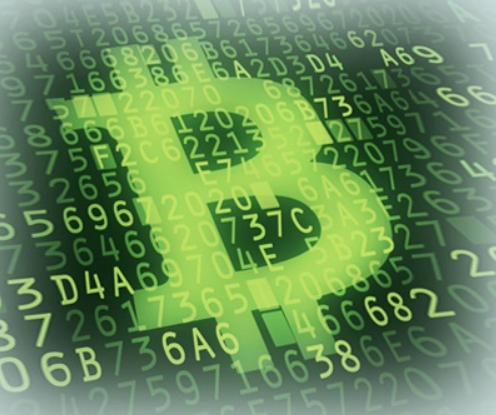Banking, finance, and taxes
The Wild Ride That Is Bitcoin Is Gaining in Popularity: Here's a Primer on What It Is

Published:
Last Updated:

The digital currency bitcoin has been in the news recently, and not for the right reasons. A Russian man this week was charged with operating a black market bitcoin exchange that helped launder billions of dollars and was involved in criminal enterprises, according to a federal indictment.
There had been an ongoing dispute involving bitcoin over how it can adapt its software to allow it to handle more transactions and meet growing demand. The conflict threatened to split, or fork, bitcoin in two, causing the value of the currency to plunge. A recent agreement over software use by the warring factions is believed to have forged a compromise for those who deploy computers to verify transactions.
The accelerating popularity of bitcoin has raised some red flags among value investors who are concerned the so-called cryptocurrency price run-up has echoes of the tulip mania in the Netherlands in the 17th century and dotcom bubble of the 1990s.
247 Wall St. thought this would be a good opportunity to present a primer on the cryptocurrency that is gaining popularity and is used by companies and organizations such as Microsoft, Dell, Whole Foods, a pizzeria in Jersey City and the San Jose Earthquakes soccer team.
Q: What is bitcoin?
Bitcoin is a digital currency that is held electronically and is the most common form of cryptocurrency in the world. Bitcoins are created when computers solve complex mathematical problems. The problems become more difficult in order to limit bitcoin supply. Other cryptocurrencies include Ethereum, Ripple, Litecoin, Dash and Monero.
Q: When was bitcoin launched?
The first transaction was carried out by Satoshi Nakamoto, supposedly the founder of bitcoin, on January 12, 2009. For trials purposes only, he sent the payment to Harold Thomas Finney, who was a member and contributor of the cryptography community.
Q: How does one get bitcoins?
Bitcoins can be purchased for dollars, euros, yen or other national currencies on trading exchanges.
Q: Why is the price of bitcoin so volatile?
The price of bitcoin is determined by what people are willing to pay for it. Bitcoin’s volatility can be attributed to its relatively small market size. Another factor for its volatility is cryptocurrency prices are volatile because few speculators understand the technology or its potential. The currency also is not backed by any government reserves, lending to its volatility.
Q: What gives bitcoins value?
The premise behind bitcoin is a fixed number for the currency. The total number of bitcoins is capped at 21 million.
Q: What is the value of a bitcoin?
The price of a bitcoin was $2,594.11 Thursday morning. Its record is $3,025.47, reached on June 11, according to data from CoinDesk.
Q: What can people buy with bitcoin?
Virtually anything. The first transaction was made at a pizzeria. It is not known what was on the pizza that was purchased.
Q: Are bitcoins regulated?
There is no central authority or bank. Managing transactions and the issuing of bitcoins is carried out by the network. Bitcoin is released through open-sourced software. Governments are wary of cryptocurrencies because they want to have control over monetary platforms in their respective countries.
Q: Can you invest in bitcoin?
You can invest in the digital currency by mining your own bitcoin, buying some from an exchange or purchasing shares in a fund invested in them.
Q: What are the benefits of bitcoins?
For consumers, bitcoins can be exchanged like cash, with no personal information attached. Bitcoins also are useful for international purchases, because they can be used around the world. For merchants, bitcoin transactions save money because the typical processing fees are lower than processing fees for credit cards.
Q: What are the risks?
Bitcoins are highly volatile, with big swings in value. Bitcoins are not backed by central banks or government reserves.
Q: Is there a dark side to bitcoin?
Dark web users prefer bitcoin for payment because there is no evidence a purchase has taken place. Some of the items purchased may include drugs, weapons and counterfeit products. The anonymity of the transaction further complicates the tracking procedure.
If you’re like many Americans and keep your money ‘safe’ in a checking or savings account, think again. The average yield on a savings account is a paltry .4% today, and inflation is much higher. Checking accounts are even worse.
Every day you don’t move to a high-yield savings account that beats inflation, you lose more and more value.
But there is good news. To win qualified customers, some accounts are paying 9-10x this national average. That’s an incredible way to keep your money safe, and get paid at the same time. Our top pick for high yield savings accounts includes other one time cash bonuses, and is FDIC insured.
Click here to see how much more you could be earning on your savings today. It takes just a few minutes and your money could be working for you.
Thank you for reading! Have some feedback for us?
Contact the 24/7 Wall St. editorial team.